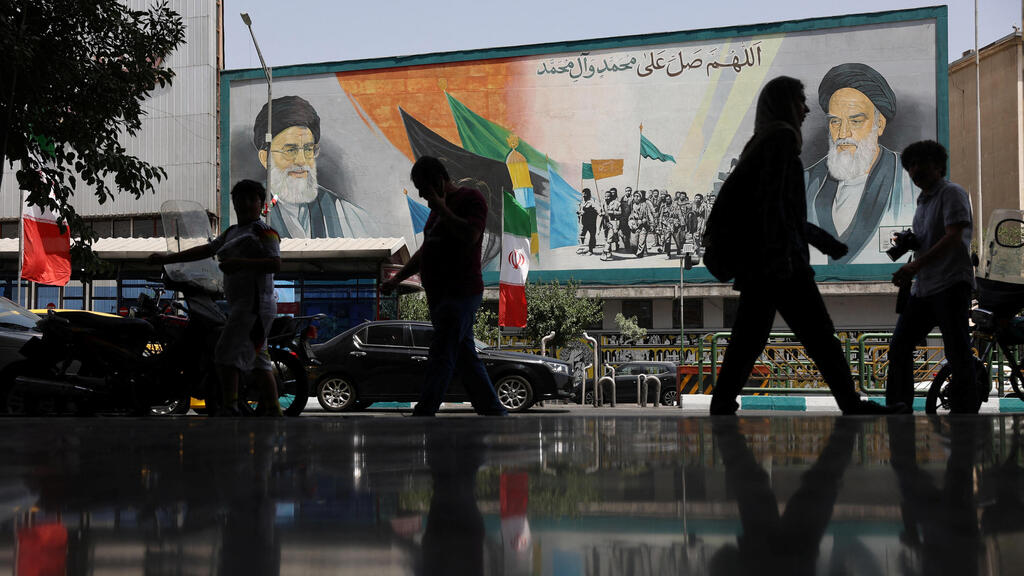The first test of the ceasefire reached between Israel and Iran is also the defining question of the entire campaign: How can Israel maintain the new balance of power with Tehran, one achieved through a military success that was, by many accounts, unprecedented.
Recent history provides a reference point: the ceasefire agreement with Hezbollah, which has largely held since it was reached. In both cases—Hezbollah and Iran—Israel prepared extensively for war with an enemy that had stockpiled ballistic missiles capable of targeting the Israeli home front. Against Hezbollah, a deeply entrenched Iranian proxy in Lebanon, Israel successfully leveraged its gains to establish a new strategic reality.
1 View gallery


Tehran after the ceasefire
(Photo: Majid Asgaripour/WANA (West Asia News Agency) via Reuters)
Despite ongoing Israeli strikes in Lebanon, Hezbollah has so far refrained from aiding its Iranian patrons—even symbolically. When the ceasefire was announced with the Shiite militia, many in Israel, particularly in the north, feared the war had ended too soon. But so far, the outcome has held, aided in part by a shift in public sentiment in Lebanon against Hezbollah.
The Iranian case is more complex. Iran is a sovereign nation, not a proxy force, and its nuclear ambitions remain undeterred—perhaps even reinforced. While Iran may have proven to be a less formidable adversary than worst-case scenarios suggested, this is no time for arrogance or overconfidence. Lives were lost, damage was done, and the threat is far from over.
If the U.S.—under President Donald Trump, who has clarified he is not seeking regime change—intends to pursue negotiations with Iran for a more stringent nuclear deal, Israel will need to press for clearly defined limits on Iran’s nuclear and missile programs. It will also need firm definitions of what constitutes a violation and what Israel will be allowed to do in response.
Get the Ynetnews app on your smartphone: Google Play: https://bit.ly/4eJ37pE | Apple App Store: https://bit.ly/3ZL7iNv
For all the success of Israel’s air operations over Iran—an achievement in its own right—it is no substitute for concrete terms in an agreement negotiated by others. That context makes Israel’s own response to the Iranian missile fire after the ceasefire came into effect worth examining critically.
While senior Israeli officials—from Defense Minister Israel Katz and Finance Minister Bezalel Smotrich to IDF Chief of Staff Lt. Gen. Eyal Zamir—rushed to make bold, swaggering statements reminiscent of the Lebanon playbook, President Trump appeared to mock their rhetoric. Not only did he publicly scold Israel, but he also phoned Prime Minister Benjamin Netanyahu and reportedly insisted that Israeli warplanes turn around midair, settling instead for a limited strike on an Iranian radar site.
Whether even that single target was worth angering the man who gave the green light to strike Iran’s Fordow nuclear facility—a move no U.S. president before him had seriously considered—is debatable. But the key lesson is this: maintaining good relations with the United States is not merely a matter of gratitude, though that too is relevant, especially in Trump’s unpredictable world. It is also a strategic necessity in the new era now unfolding.
If the U.S. isn’t firmly on Israel’s side when the rules of engagement with Iran are being drawn, it may not be there next time, when it becomes clear the Iranians didn’t get the message.



